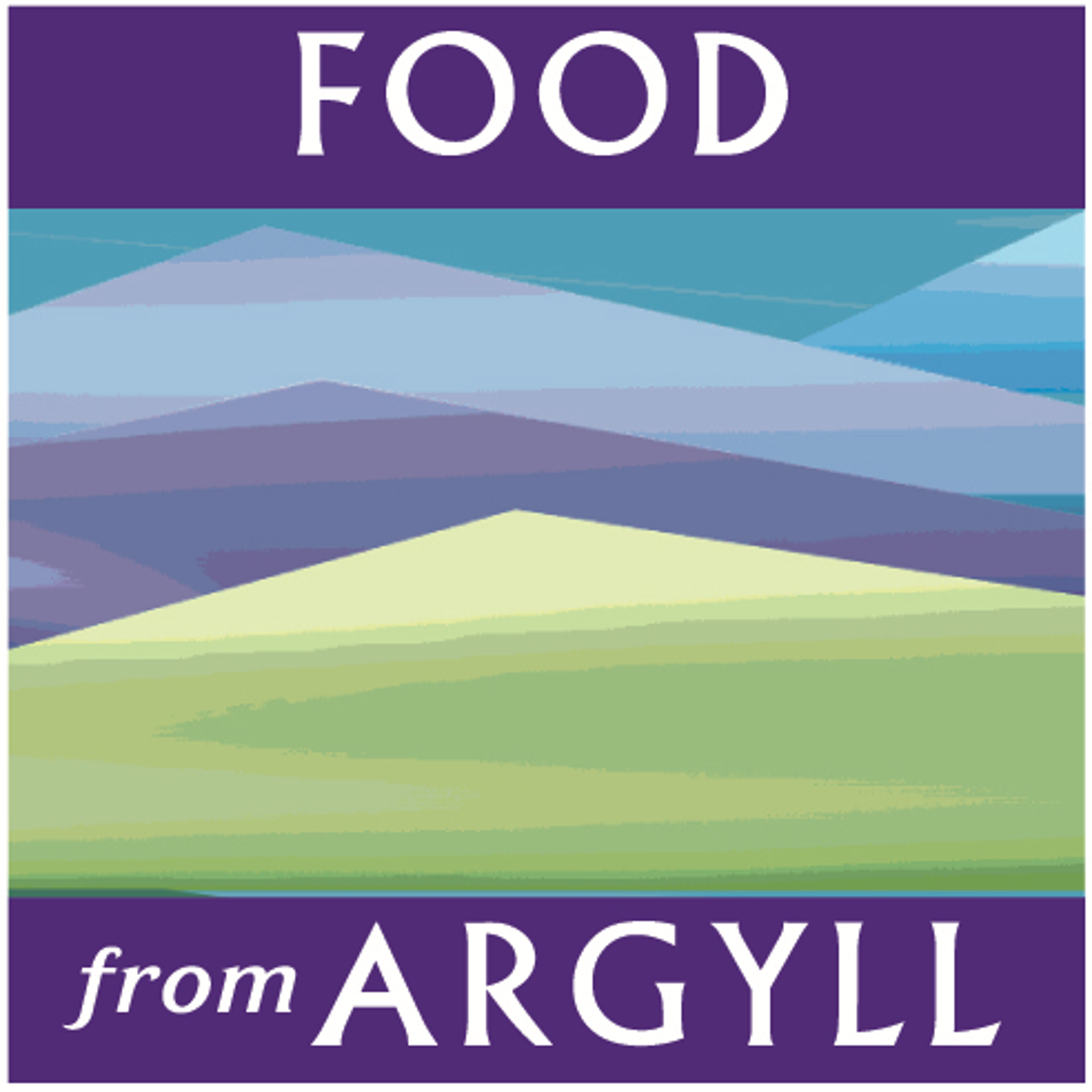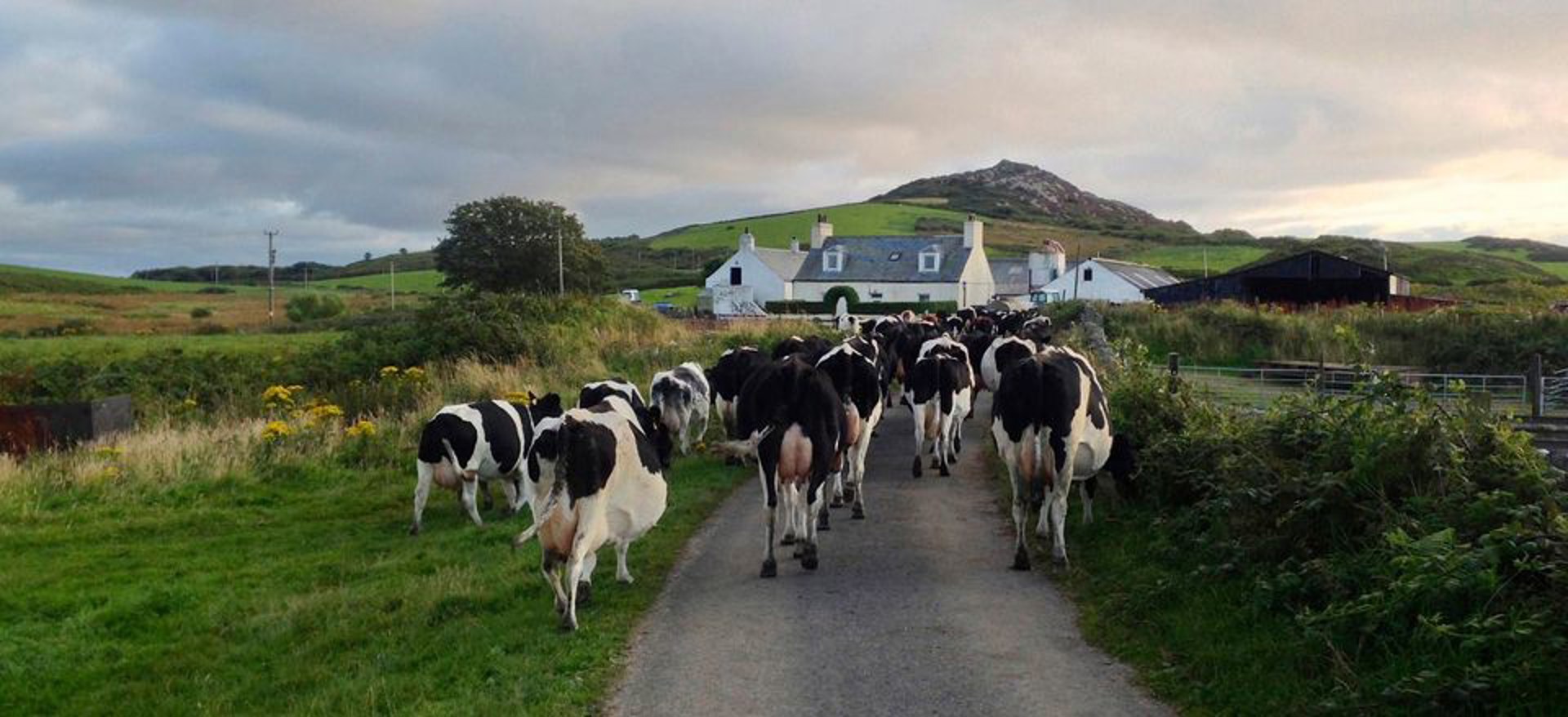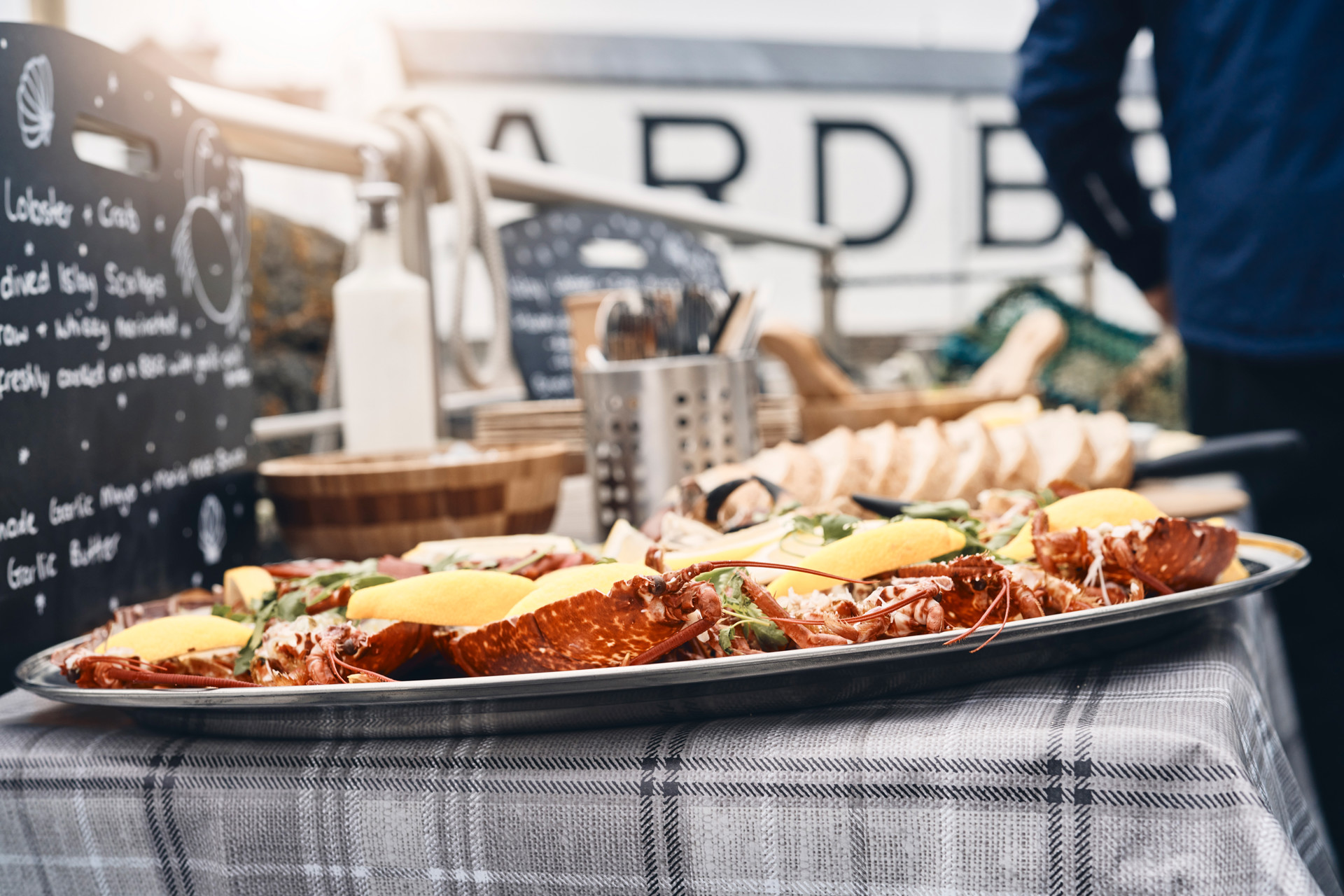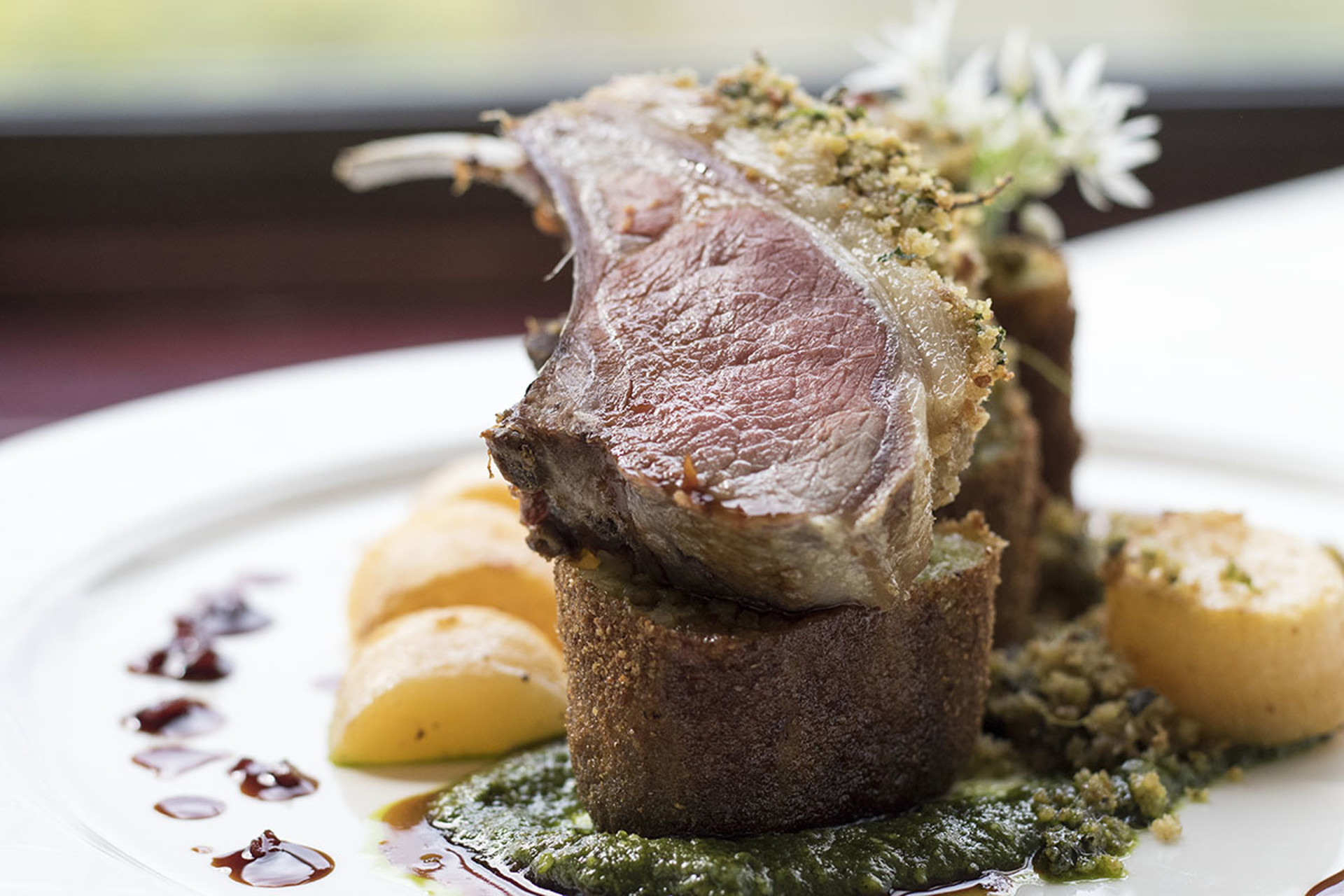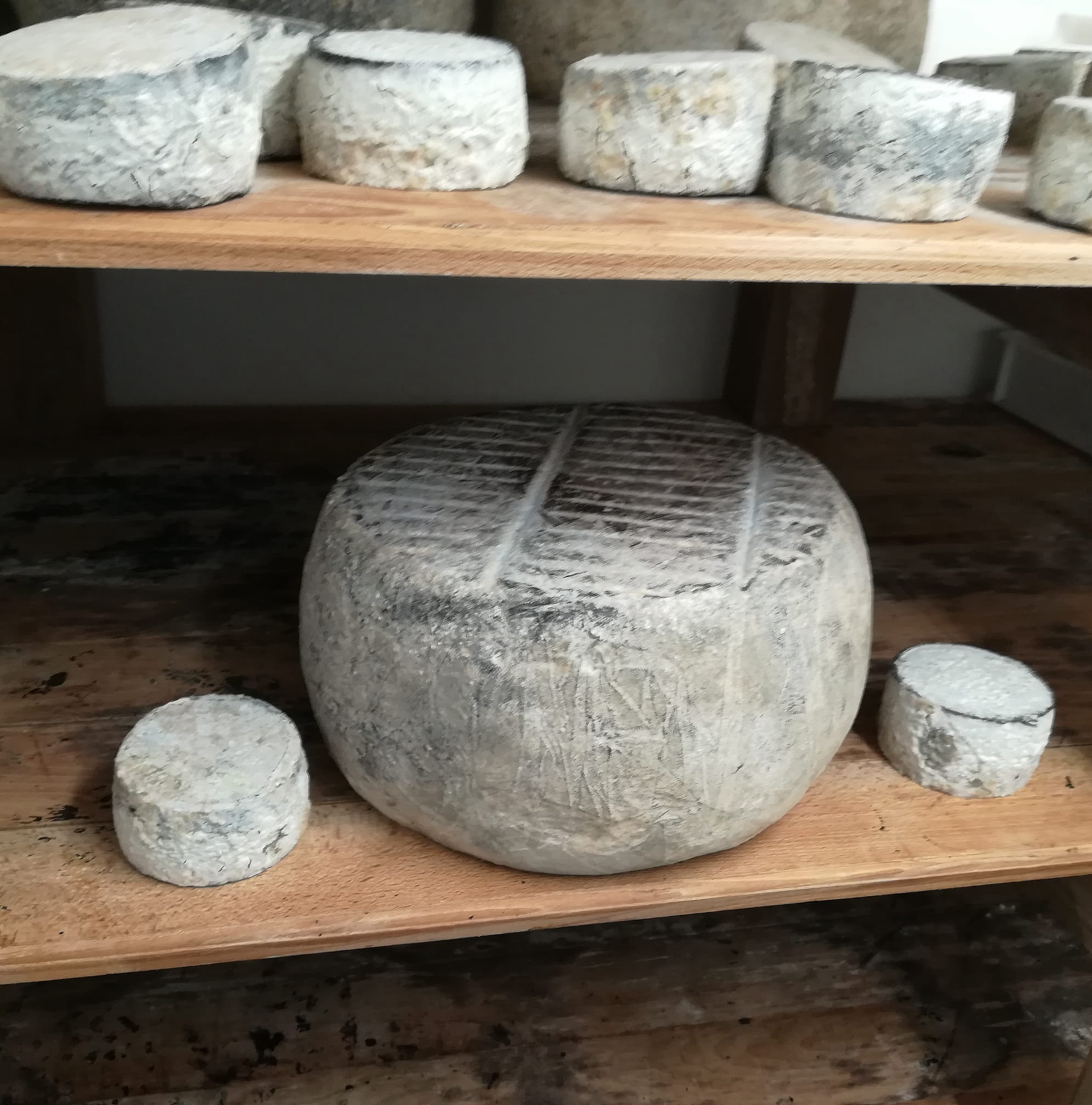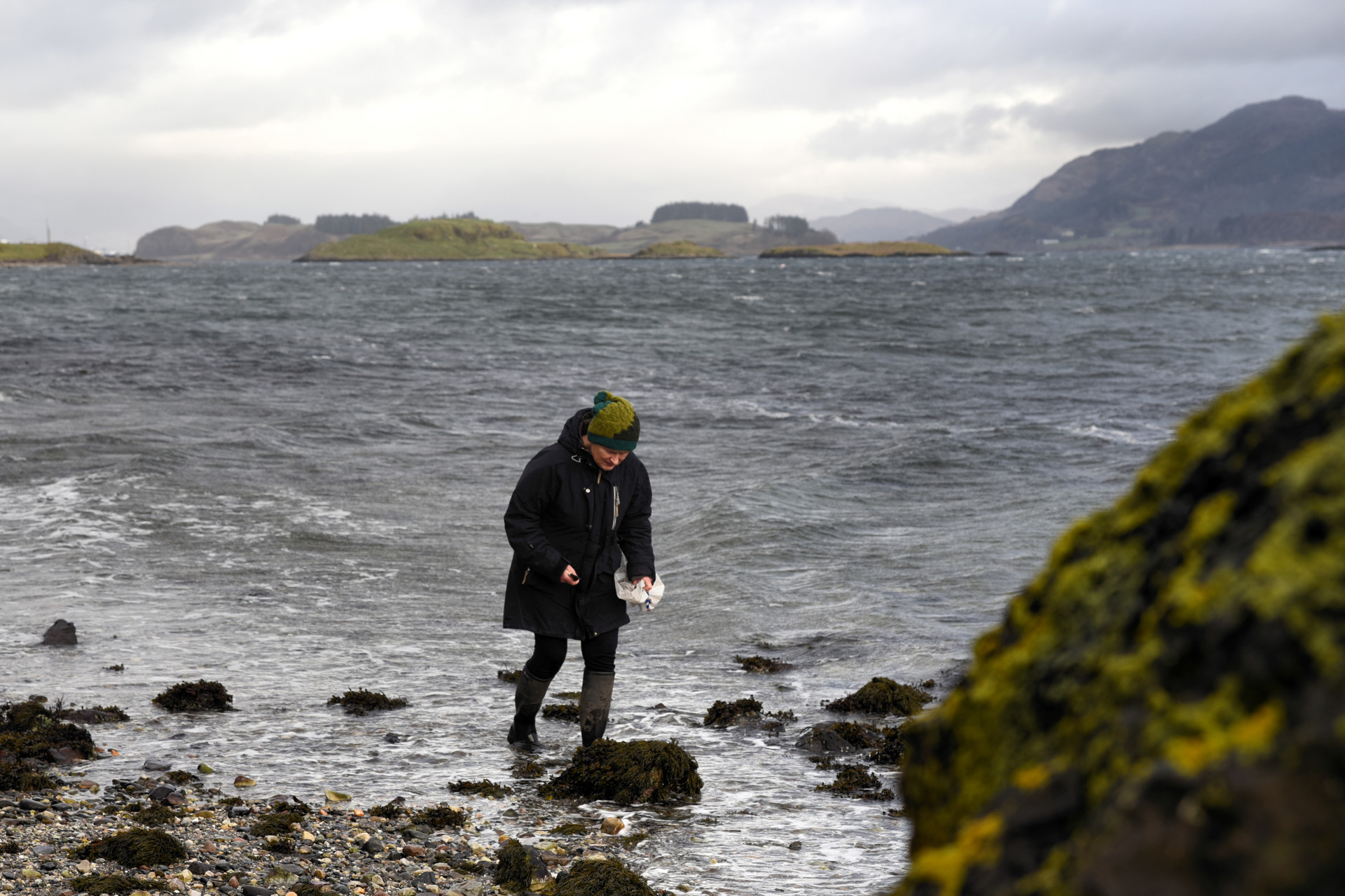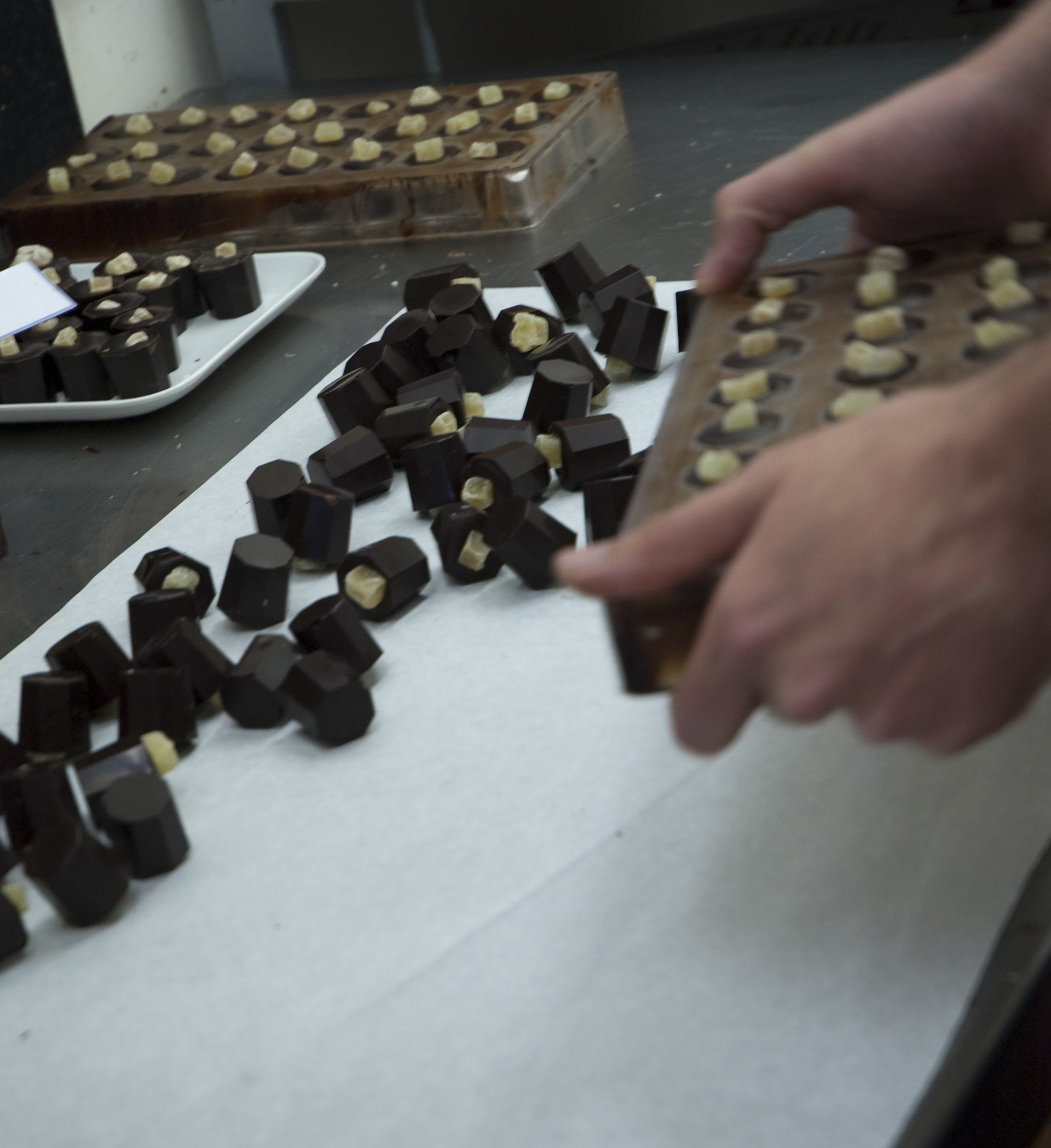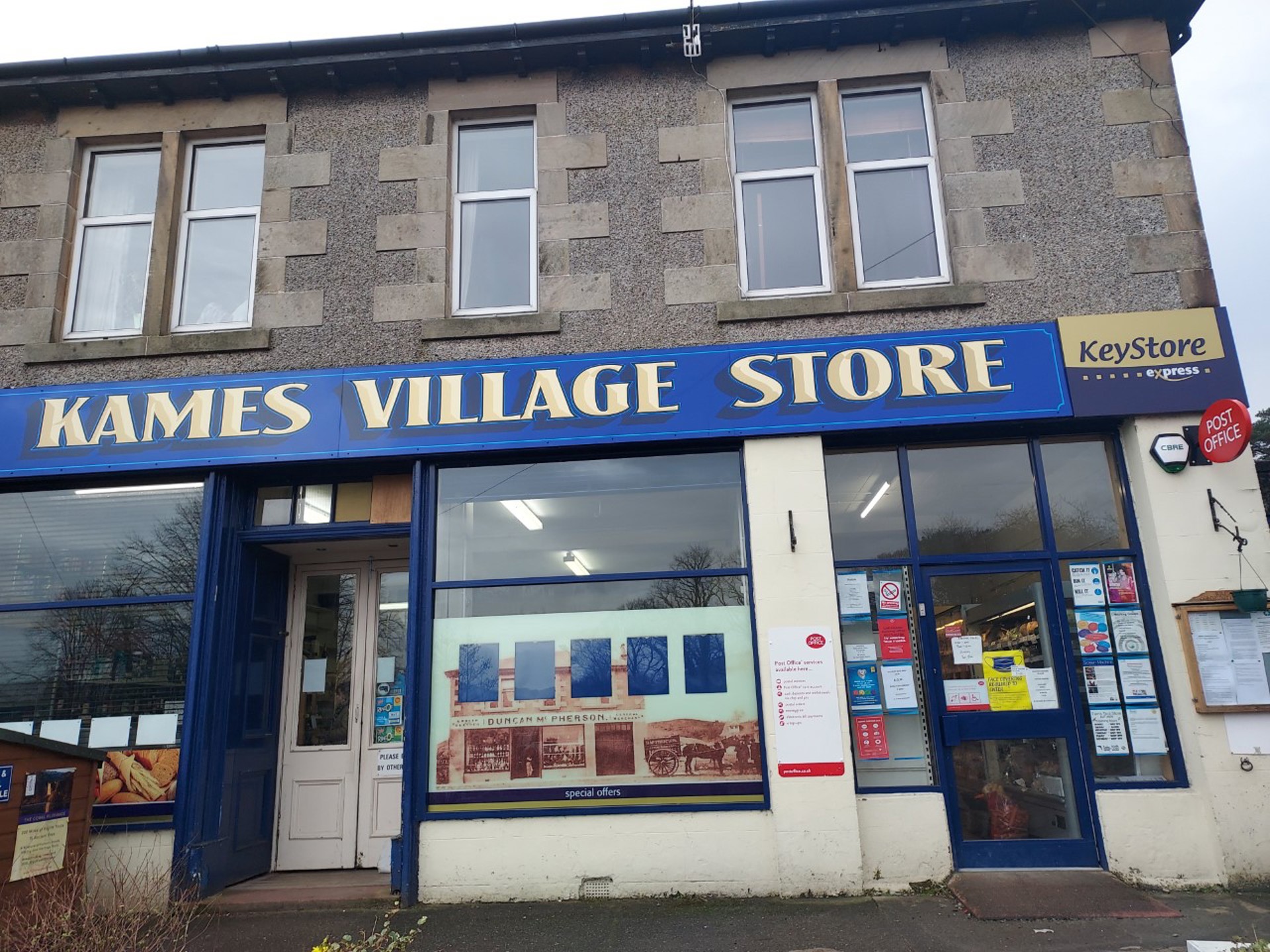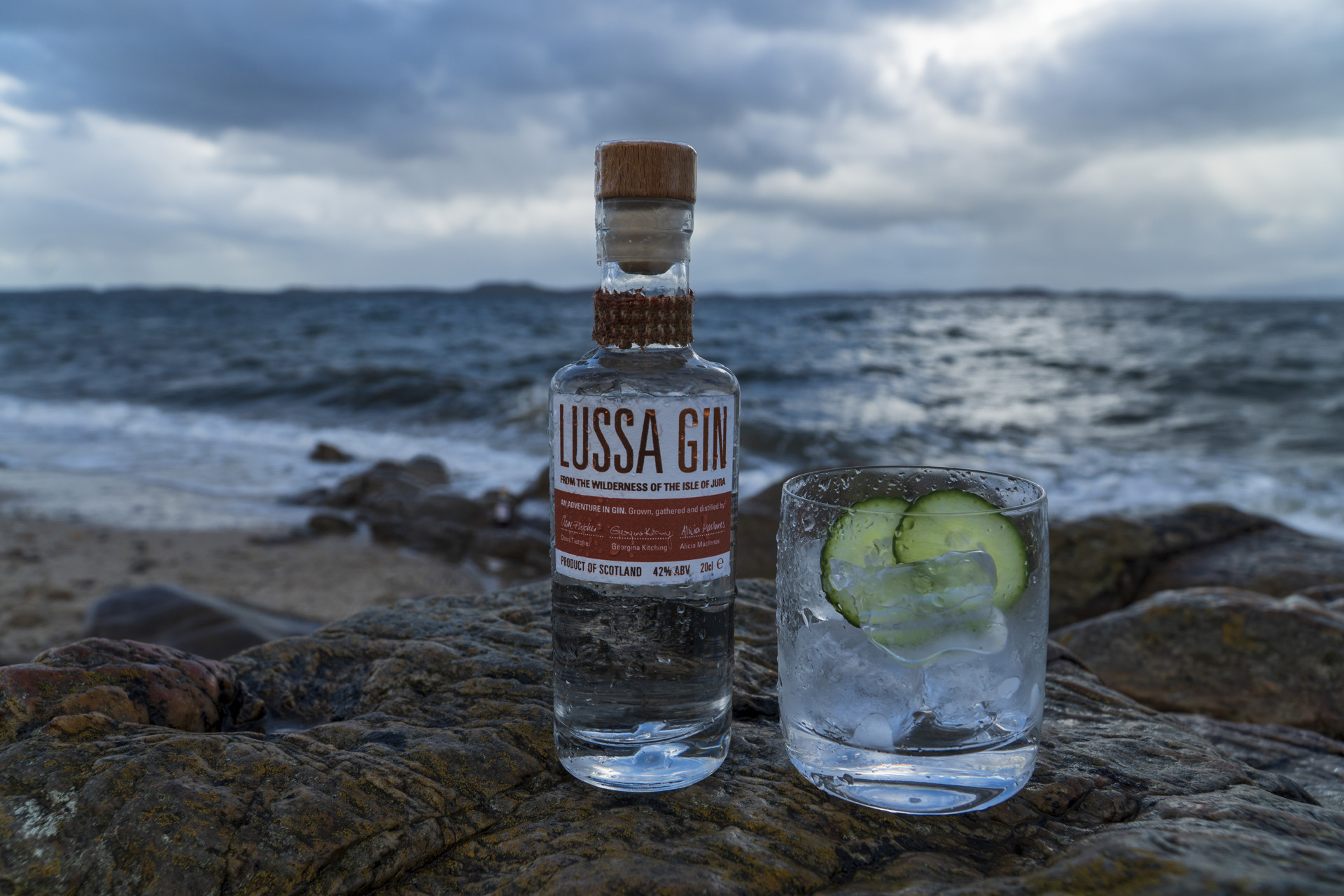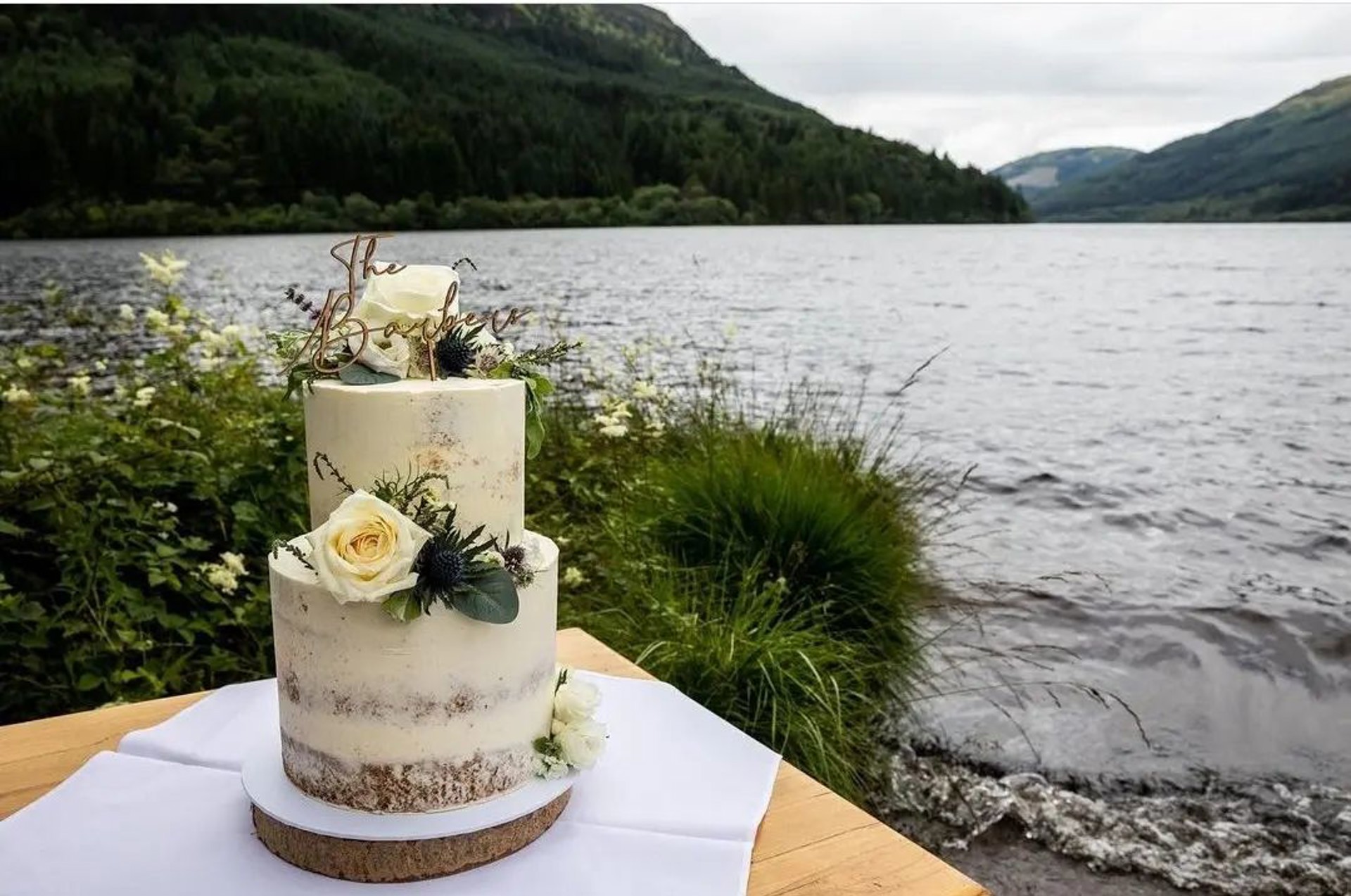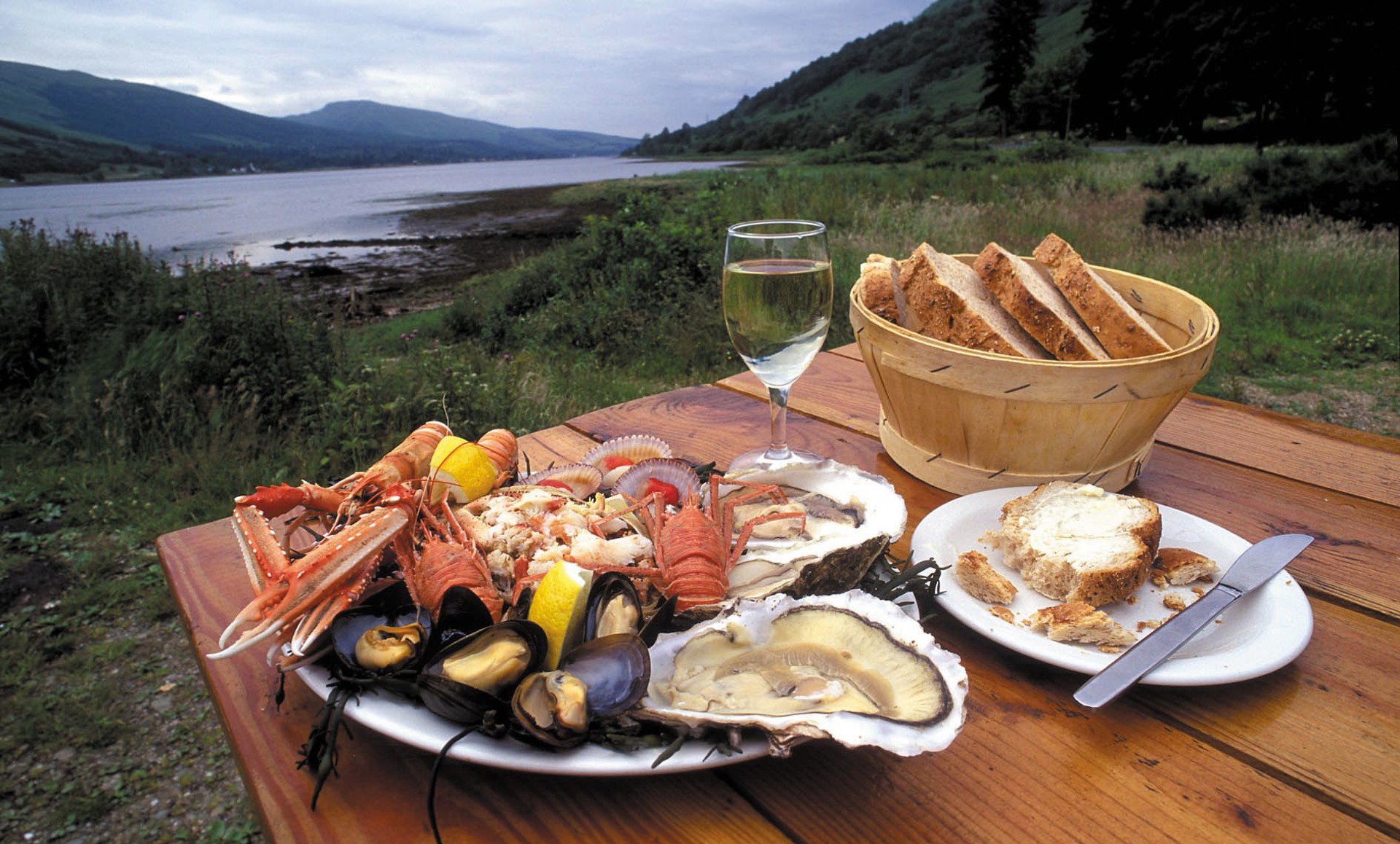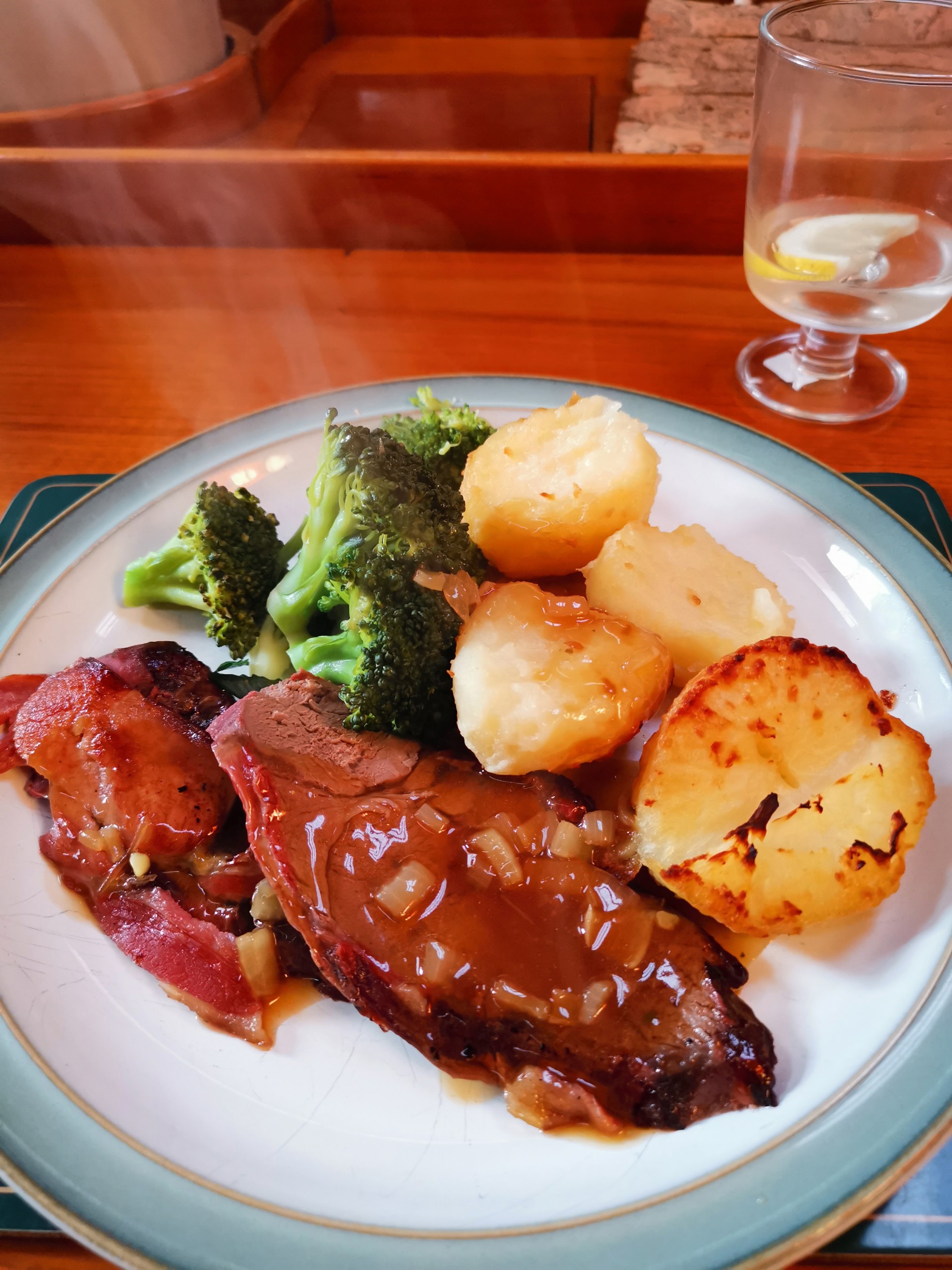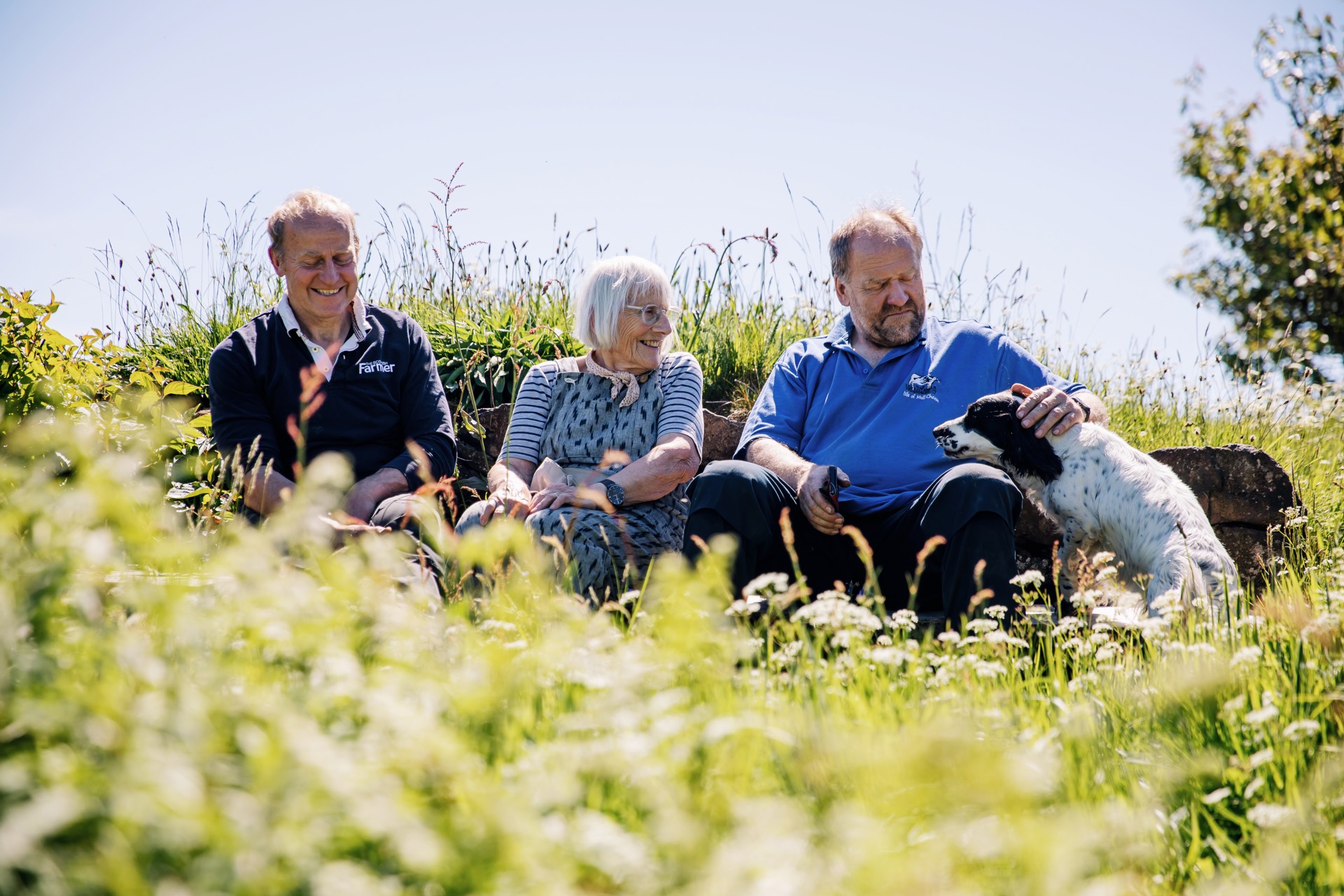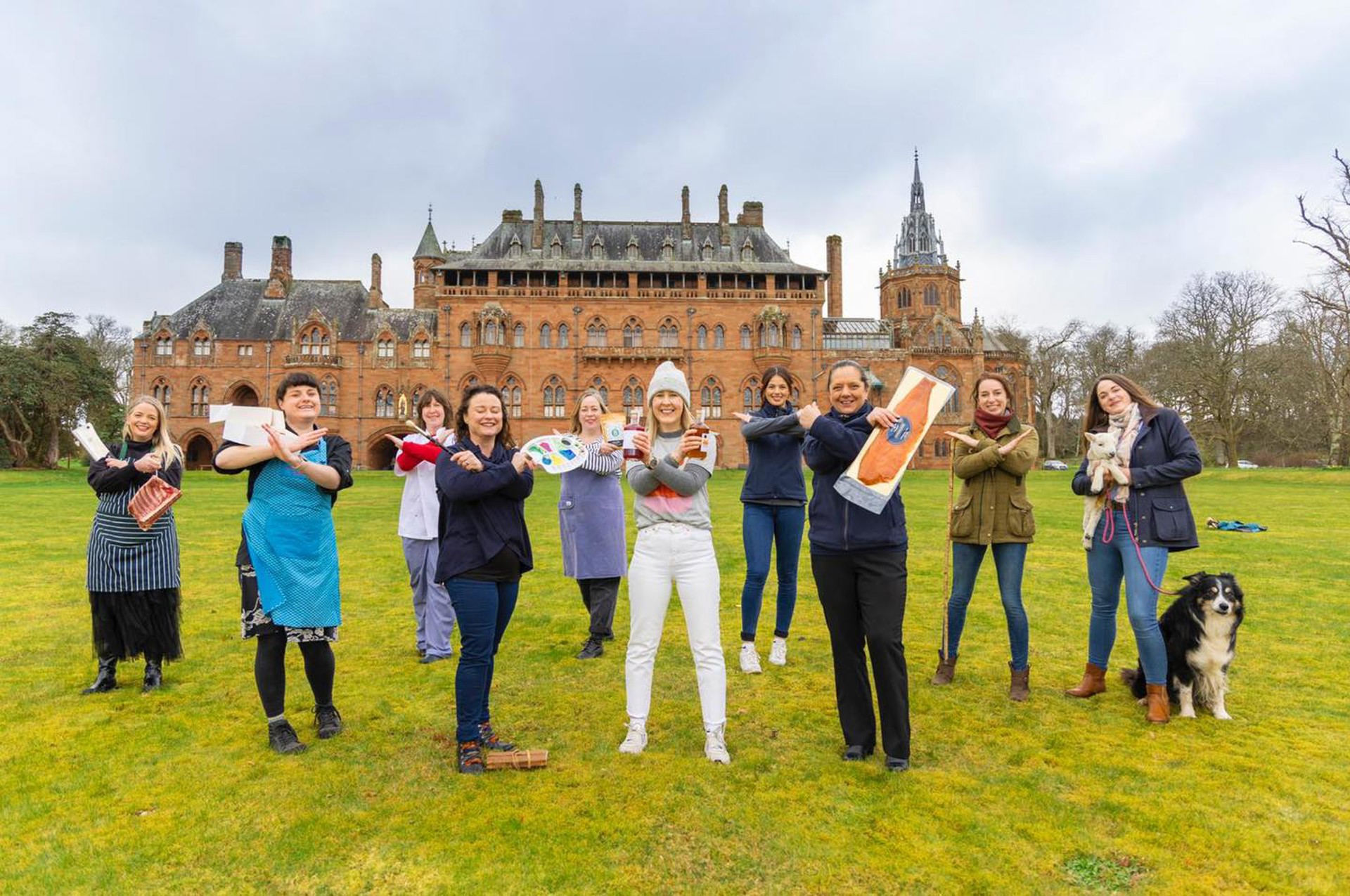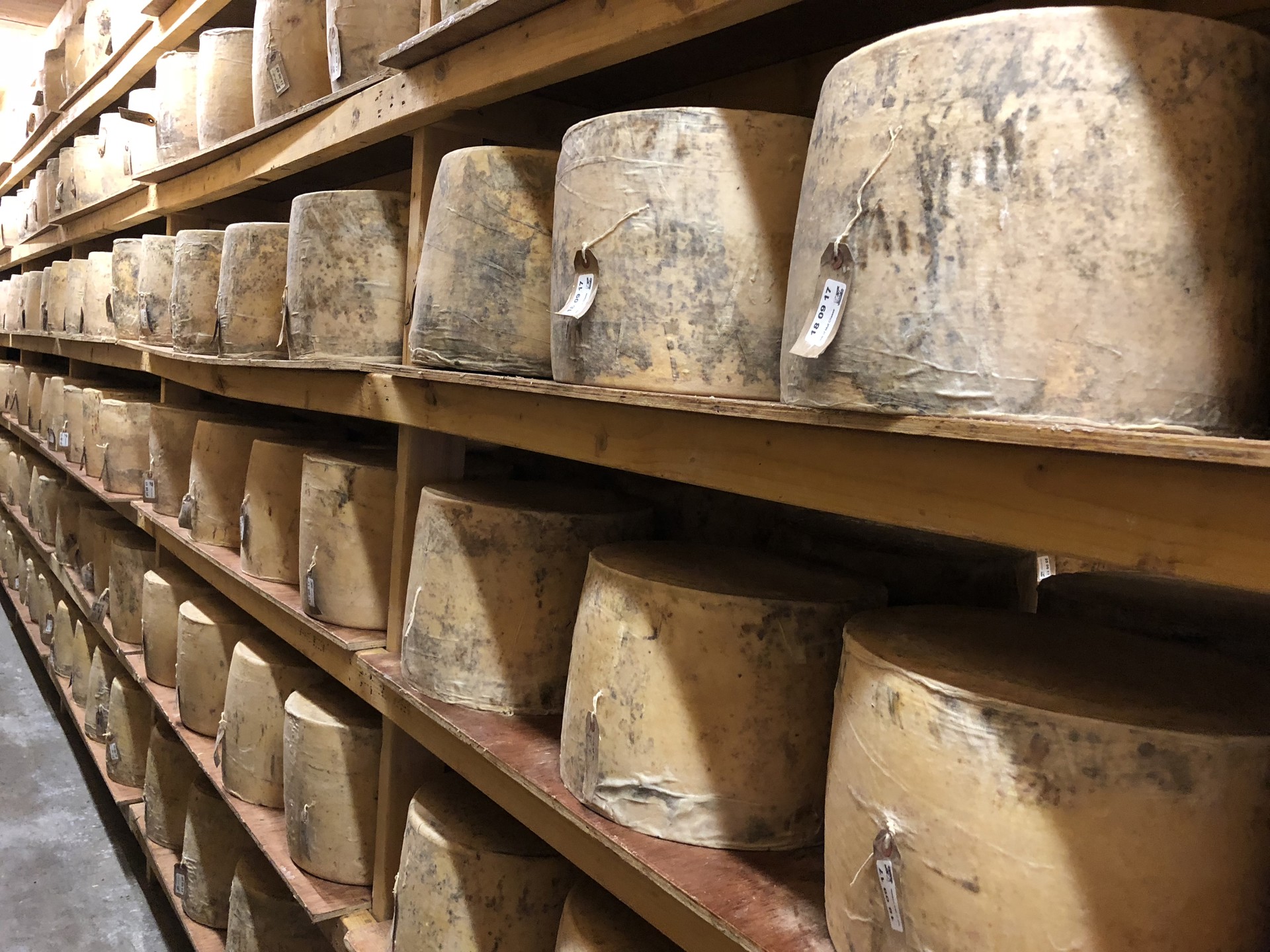
Local Food Producers
Food from ArgyllWith diverse landscapes and seascapes, Argyll & the Isles has a unique natural larder, and communities that loves its food and drink.
Food from Argyll is a group of passionate producers striving to bring good food to their customers. To find out more about this Regional Food Group, please email info@foodfromargyll.com.
As a co-operative organisation they are working together to achieve common goals and develop the area’s unique natural larder.
Living and working in one of most scarcely populated areas of Scotland, our local communities use a wealth of traditional skills to produce our meats, cheeses, fresh milk, ice cream and smoked fish.
Explore our land and sea, meet our producers and taste our dishes to understand why we are rapidly gaining a reputation as a destination for foodies. You won't be disappointed

Food from Argyll
Local producersExperience the unique, fresh taste of Argyll & the Isles
Seafood from Argyll
Food from ArgyllUsing time-tested traditions, the smokehouse artisans and aquaculture pioneers of Argyll produce wonderful smoked and fresh fish. The fresh pure waters of our unique coastline produce abundant nutrient-rich fish and shellfish, many of which are caught or harvested by hand. For provenance, quality, taste and freshness, Argyll's seafood is hard to beat.
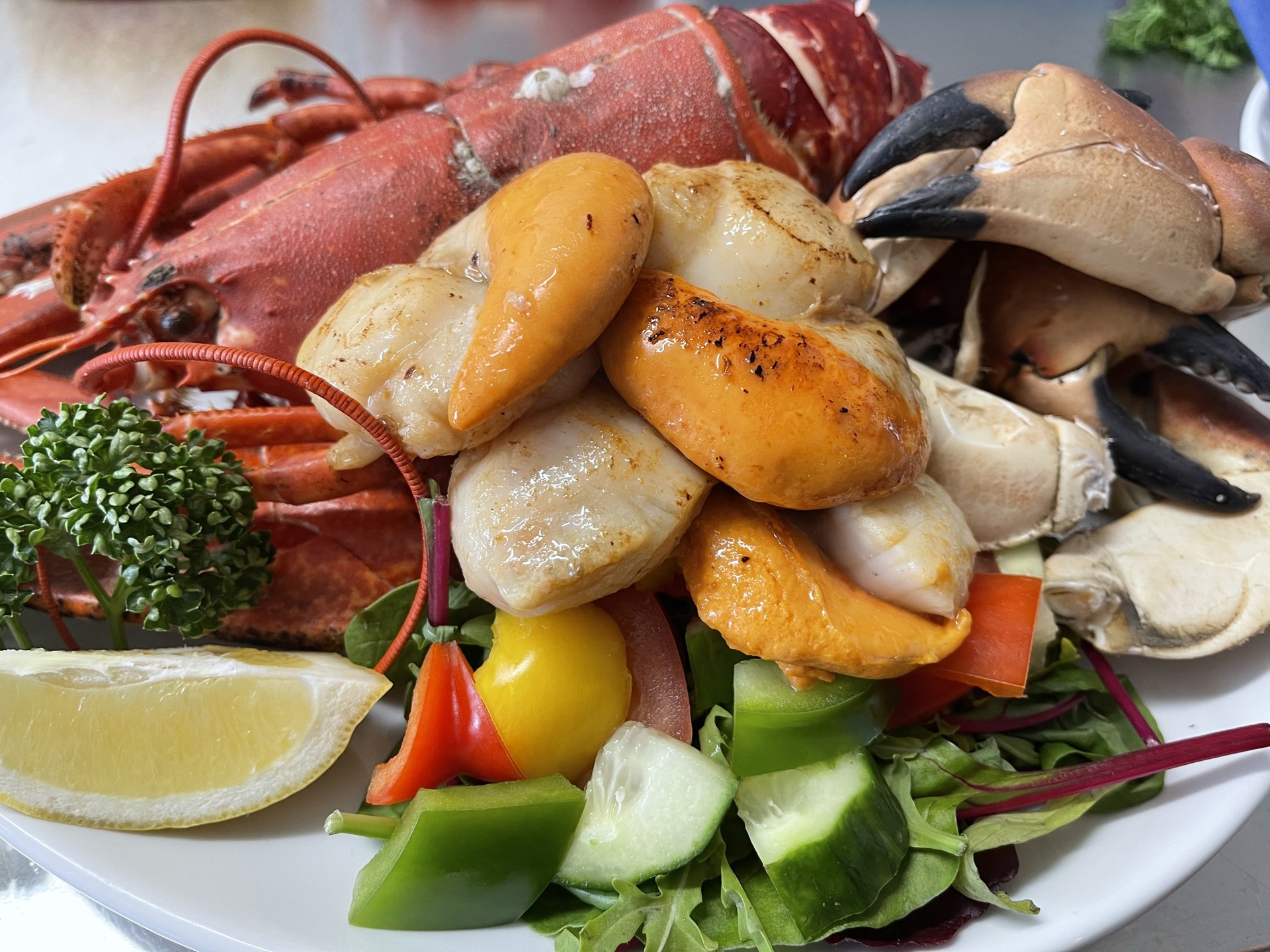
Smokehouses
A smokehouse, or smokery, is a building where meat, fish and cheese are cured with smoke and stored over long periods to absorb the smoky essence. Originally a way of preserving food, smokehouses are now recognised for their distinctive rich flavours. Cold smoking preserves the food and imparts a delicate flavour, while hot smoking flavours the food while it’s cooking. Argyll’s smokehouses were traditionally used to smoke herring into kippers. This process of ‘kippering’ is where the name ‘kipper’ comes from.
Nowadays, smokehouses have direct access to the freshest, finest Scottish salmon and chips from the oak barrels used in whisky production. The artisan skills of dry curing and slow smoking in kilns have been passed down through the generations to produce something very special. It is so special that no visit would be complete without sampling this unique, aromatic fare.
While our smokeries are probably best known for their salmon, they also produce Loch Fyne kippers, trout, seafood, meat and game, cheese, pates and even trout and lumpfish caviars.
If you’re curious about how smoked products are made, Skipness Smokehouse has a visitor walkway where you can observe production in progress. It’s a nice way to connect with the products, people and artisan skills before choosing which delicacy to sample. The shop offers a wide selection of smoked items, and you can buy baskets to make up your own hampers. If you can’t make it to the smokehouse, look out for their products in Lochgilphead Co-op, Glenbarr Stores (Kintyre), One Fyne Deli (Tarbert), and Tayvallich Café & General Store. While you’re in Skipness, head to the castle and grab some lunch at the Skipness Seafood Cabin, described by Rev Richard Coles in The Guardian as a cabin “that has got it exactly right”. From the castle, you’ll get great views across the Kilbrannan Sound to Arran and you can also walk to the beach to explore St Brendan’s Chapel.
Alba Seafood is a family business which smokes using the shavings from oak whisky barrels for a delicious range of smoked seafood products. Holder of a Great Taste Food Award for their hot smoked salmon, the business produces a distinctive smoked range as well as fresh fish and seafood, expertly sourced by Willie. We‘re quite partial to the smoked salmon pate and hot smoked mussels. Buy online or at local events.
Inverawe Smokehouse is a traditional family business which started with the owners smoking fish in their back garden on the banks of the River Awe. The business now has a Royal Warrant and a host of awards but the smoking technique remains simplicity itself. Prime fish, salt, oak smoke and time combine to produce a smooth, smoky flavour with a delicious, succulent texture. Once tried, never forgotten! Sadly, the smokehouse had a fire last year so, for the time being, the shop and visitors centre is closed but you can still find their products in local deli’s and independent food shops. You can also order online. Visit the website for all smokery products plus a divine range of gift boxes and luxury hampers. The adjacent fisheries offer fly, trout and salmon fishing on Loch Awe, Inverawe Loch and Lily Loch.
The Tobermory Fish Company on the Isle of Mull stretches back to 1971 when a pioneer trout farm was established in the garden stream of the owners. The first smokehouse was established a few years later and smoked goods were offered as part of a family cottage industry. In 1999, the smokehouse relocated to the much larger Baliscate Smokehouse and has since been refurbished. The company is still in the family and uses top-secret recipes passed down the generations, and always uses natural smoke with no dyes or additives. The Tobermory Smoked Trout is the flagship product and it’s so legendary that it featured in an episode of All Creatures Great and Small when a vet received a parcel of this beloved delicacy. It was immediately after this that the mail-order business took off. When Scotland’s National Chef Gary MacLean visited in 2017, he had only one reaction on sampling the trout: “Wow”. You can buy smoked trout, smoked salmon, smoked haddock, kippers and shellfish plus a deli selection from other small local producers in The Tobermory Fish Company Smokehouse and Local Produce Store. It’s a haven for fish lovers and their recipe for Scottish Savoury Pancakes with Tobermory Smoke Trout is divine!
The Isle of Bute Smokehouse (formerly Ritchie’s of Rothesay) has been smoking Scottish salmon, trout and kippers on the West Coast of Scotland since 1888. The original Smokehouse was founded by Peter Barr and Barr’s kippers were believed to be a favourite of Queen Victoria’s when in residence at Balmoral. The company has since evolved but remains a small, artisanal business, using methods handed down from each generation of master smokers. The products are cold smoked using shavings and sawdust from oak whisky casks for a wonderful depth of flavour. Try the Oak Smoked Gin Cured Salmon or the Oak Smoked Scottish Cheddar, or treat yourself to one of their luxurious selection boxes, packed with treats from local producers.
Kintrye Smokehouse was founded by trawlerman Archie Macmillan MBE to further his passion for producing fine Scottish seafood. Located in Campbeltown, the smokehouse (converted from a dilapidated kipper house) handcrafts the finest ingredients into a range of delicious fare, from smoked scallops, smoked halibut, smoked cheese and the aptly named Big Kipper. You can buy their products at the shop or find their range in The Fish Shop (Campbeltown) and Loch Fyne Oysters (Cairndow). If you’re a fan of seafood, the website is well worth a visit for its mouth-watering recipes. We love the Luscious Smoked Chowder and Macmillion Fast Scallops.
Murrays Smoked Products is a long-established family-run smokehouse based in the village of Ford on Loch Awe. You can buy fresh and smoked fish and shellfish at their lovely shop in Lochgilphead. It has a full house of five-star reviews praising the scallops, fishcakes, hot smoked salmon, langoustine and wild-caught halibut. The service is friendly too!
Colonsay Smokery was born of a passion for food and a passion for place. Colonsay Smokery produces the finest traditionally smoked and cured salmon from their old farm steading on 'the Jewel of the Hebrides'. They fillet, cure and smoke the freshest Atlantic Salmon the old-fashioned way - entirely by hand and crafted to ensure it always does justice to the 'Kind of Fish', as well as your table.
Meat from Argyll
Food from ArgyllBeef, lamb and venison sourced from the diverse landscapes of Argyll on the west coast of Scotland.
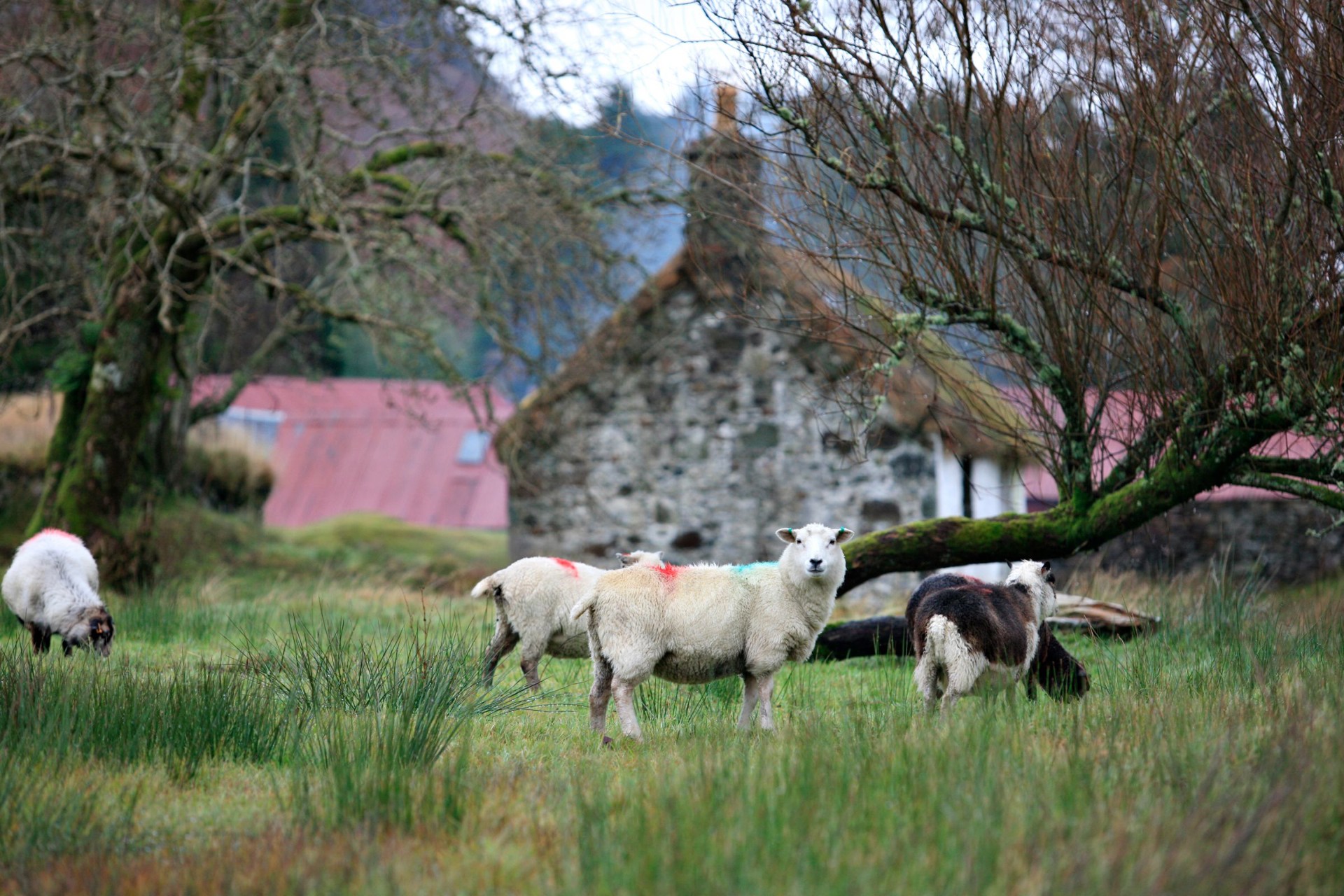
Meat & Game
80% of the Scottish landscape isn’t suitable for crops but much of it is ideal for growing grass and feeding cattle and sheep. That’s why meat production is so big here. Animals are naturally reared in the perfect landscape and climate on Scottish grasslands and coastal pastures rich in biodiversity.
From field to plate, welfare is paramount. Food miles are low. There’s no wonder it tastes so good. Famers in Argyll & the Isles have embraced farm traceable, sustainable farming to produce superior quality meat, the finest cuts and a tender, succulent taste.
Auchnasual Farm is a small family farm producing high-quality, artisan beef from a herd of Highland and Highland Cross cows. The breeding cows roam free all year round, grazing the low-lying "inbye" fields in the summer so they can look after their calves and romance with Dakota, the Simmental Bull. In the winter calves and yearlings are bought inside for shelter and the adult cows move to the beautiful Creag Uillean hill, where they can romp through the heather and find shelter in the woods. Beef cattle are fattened on grass in the summer and in the winter they are fed hay, straw and "distillers draff", a nutritious leftover from the production of single malt whisky. When they are ready, cattle are hand-picked for local slaughter on the Isle of Mull. After 28 days hanging (for maturation and tenderness), the beef is cut and vacuum-packed. The breeding philosophy (crossing Highland cows with another breed for hybrid vigour), produces a bigger carcass and dense been with good marbling. Auchnasaul beef is on the menu at Tigh an Truish (Clachan Seil) , The Oyster Bar and Restaurant (Ise of Seil) and The Puffin (Easdale). Stockists include Balvicar Stores (Isle of Seil) and Oban Food Hub Online Market.
Glengorm Farm is a working hill farm with a pedigree highland cattle fold, blackface sheep and wild red deer, all of these live extensively on Glengorm's 5,000 acres and spend their whole life outdoors. The slow and traditional rearing of these animals allows them to produce the most wonderful-tasting meat. All the butchering and processing is done on the island with very low food miles. You can buy the farm produce from Glengorm Farm, the Tobermory Fish co, Glengorm Coffee shop, Tobermory Stores and the Tobermory Producers market.
Balliemore Farm is a small family farm on the Isle of Kererra (next to Oban). Predominantly a sheep farm, they also have a herd of Dexter cows and an Aberdeen Angus bull. The resulting cross produces delicious grass-fed beef. There are also Pietrian pigs which are housed outside so they have plenty of room to roam…sometimes a bit more than the farmer would like! You can buy farm produce from The Blue Shed on the farm which also sells a range of other local products.
The Wee Pig Company is based on a croft in Kilmore which aims to produce high-quality, great-tasting pork, sausages and bacon. The pigs - a cross of two traditional breeds, the Saddleback and the Oxford, Sandy and Black, are bred and reared outside. The farm also sells eggs. You can buy farm produce from the Oban Food Hub Online Market.
Mull Slaughterhouse provides a slaughtering and butchery facility for producers on the Isle of Mull and the surrounding area. It sells local meats and usually has a frozen stock of beef, venison and sometimes lamb. They make and see burgers, sausages, Lorne, beef olives and black pudding. You can buy meat at the slaughterhouse – there’s a bell at the rear of the building and they’ll be pleased to show you what’s on offer.
The Real McKay Stovie Company produces home-roasted lamb stovies (a traditional, comforting blend of potatoes, vegetables and lamb) from a flock of Blackface lambs, born and reared on the 2,400 acre Stronmagachan Hill Farm. You can buy the stovies at a number of festivals, events and markets. Check out their Facebook page for dates.
The Winston Churchill Venison Company is a micro-business which harvests wild venison. Originally a stalking enterprise based in Argyll forestland, the owner trained as a butcher to sell the carcasses to friends and family. The business gradually grew, and you can now buy venison steaks, strips and mince, partridge, rabbit and pheasant online, or at local markets and events. It is also stocked by The Argyll Larder in Campbeltown. The provenance of the meat is hard to beat, and customers give it glowing reviews.
Cheese & Dairy from Argyll
Food from ArgyllFrom islands to coastal pastures, producing cheese on the west coast of Scotland requires skill, knowledge and experience.
Milk & Ice Cream
A staple part of our diet, milk is commonly mass-produced, pasteurised, homogenised, skimmed and sold in the supermarket in plastic bottles. Producers in Argyll are doing things a little differently. Taste the difference…
The Wee Island Dairy on Gigha is run by brother and sister team Emma and Mark Rennie. The milk is the only milk available in Scotland that is pasteurised using traditional, low-temperature methods. This whole milk isn’t homogenised so the cream naturally floats to the top of the bottle. It’s very nostalgic (for those of us of a certain age!). Glass bottles add to the effect and can be recycled to reduce waste. This is milk like it used to be! In 2017, the product was awarded the title of Best Chilled Dairy Product by the prestigious Quality Food Award. You only have to taste it to see why. Rich, creamy and satisfying, it’s nothing like the mass-produced milk we’ve grown used to. It’s heaven-sent for ice cream, and Emma’s husband, Don, heads up this side of things producing rich, silky ice cream in traditional and innovative flavours. A true artisan producer Don uses only the finest ingredients – vanilla extract instead of synthetic flavouring for example. As he says “Making mediocre ice cream is simple but making the best ice cream is a challenge.” It’s a challenge he has risen to. We recommend the Bramble and Whisky flavour or the Mocha! If you’re on Gigha, you can usually buy the milk from an honesty box at the gate of Tarbert Farm. Both milk and ice cream are available to buy in Ardminish Stores.
Highland Fold Ice Cream is made by a family-run business on Achinreir Farm. The high butterfat milk comes from naturally grazed, hand-milked Highland cows which are free to run with their calves. Their rich, sweet milk is perfect for a light, gelato style ice-cream and it tastes sublime. You can sample the range in the farm’s Garden and Barn Café where you’ll find a lovely selection of bakes, hot puddings and homemade fresh fruit quenchers.

Local Cheese
In years gone by, each of the Scottish islands would have had its own cheese as a way of preserving the summer milk. Nowadays, a handful of producers keep the tradition going, using time-honoured methods to craft something that’s very special indeed. The fertile green land, the pure air and the passion that goes into making these cheeses in unrivalled. Whether it’s hard or soft, from cows or goats, served on a hearty slab of crusty bread or a handmade oatcake, it tastes wonderful. Try some, and we think you’ll agree, “Blessed are the cheesemakers”.
Isle of Mull Cheese is produced on Sgriob-Ruadh farm, just outside of Tobermory. All the cheese is made with unpasteurised milk straight from a hardy, healthy herd of cows fed on grass and whisky grains from the Tobermory Distillery. The milk goes straight from the milking parlour to the cheese vats, and by retaining the organisms normally removed by pasteurisation, the cheese develops an individualism and maturity of flavour. Isle of Mull Farmhouse is a hard, cheddar-like cheese, with punch flavours while Hebridean Blue is a semi-soft blue cheese with a serious kick. Both are pale in appearance – especially in the winter – because no colouring is added. The Farmhouse cheese is widely considered to be the King of Scottish Cheddars and has won a string of awards, including the BBC Food and Farming Award, Best Scottish Cheese, British Cheese Awards Gold and World Cheese Awards. You can visit the farm to take a tour of the cheese-making, see the maturing rounds in the cellar, and enjoy fresh local produce in the stunning Glass Barn Café with its sumptuous plants and vines. There’s also a farm shop where you can load up with cheese and other local goodies to take home!
Isle of Bute Cheese was founded when Ian, a former Civil Servant, found himself at a loose end after relocating to Mull. Wandering around the island, he saw lots of dairy cows but couldn’t find a local cheese. From humble beginnings with a home cheese-making kit, Ian now produces Largie, a hard, crumbly Caerphilly cheese made with milk sourced from Holstein Friesian cows on Largievechtrean farm. The cheese is handcrafted and matured for three months for a lovely tangy flavour. And it’s suitable for vegetarians! Largie is stocked in Achnashelloch Farm Shop and Macqueens of Rothesay and at other local events – see the Facebook page for where to find it.
The Inverloch Cheese Company, founded by David and Grace Eaton, has been producing goat's cheese ever since there was a drop in demand for fresh goat's milk. After moving to Gigha, the family expanded their range to produce Isle of Kintyre flavoured cheddars and Gigha fruit cheeses. The cheddars are a taste sensation with flavours such as Laphroaig whisky, mild madras, apple smoke, claret and even gin and tonic. Idyllic as Gigha is, the family struggled to find staff and they now own The Creamery in Campbeltown. This bought opportunities to further expand the range to make Howgate Kintyre Brie, Campbeltown Loch brine-washed cheddar and Howgate Kintyre Blue. The award-winning blue is made using traditional methods for a mild blue flavour and soft creamy texture. The company remains a family business led by David and Grace, who are still both very hands-on with cheesemaking. It’s best to explore the full range online. You can buy the cheese in H McIlchere & Son (Campbeltown,) Glenbarr Stores (Tarbert), and Loch Fyne Oysters Deli (Cairndow).
Sweet Treats
Food from Argyll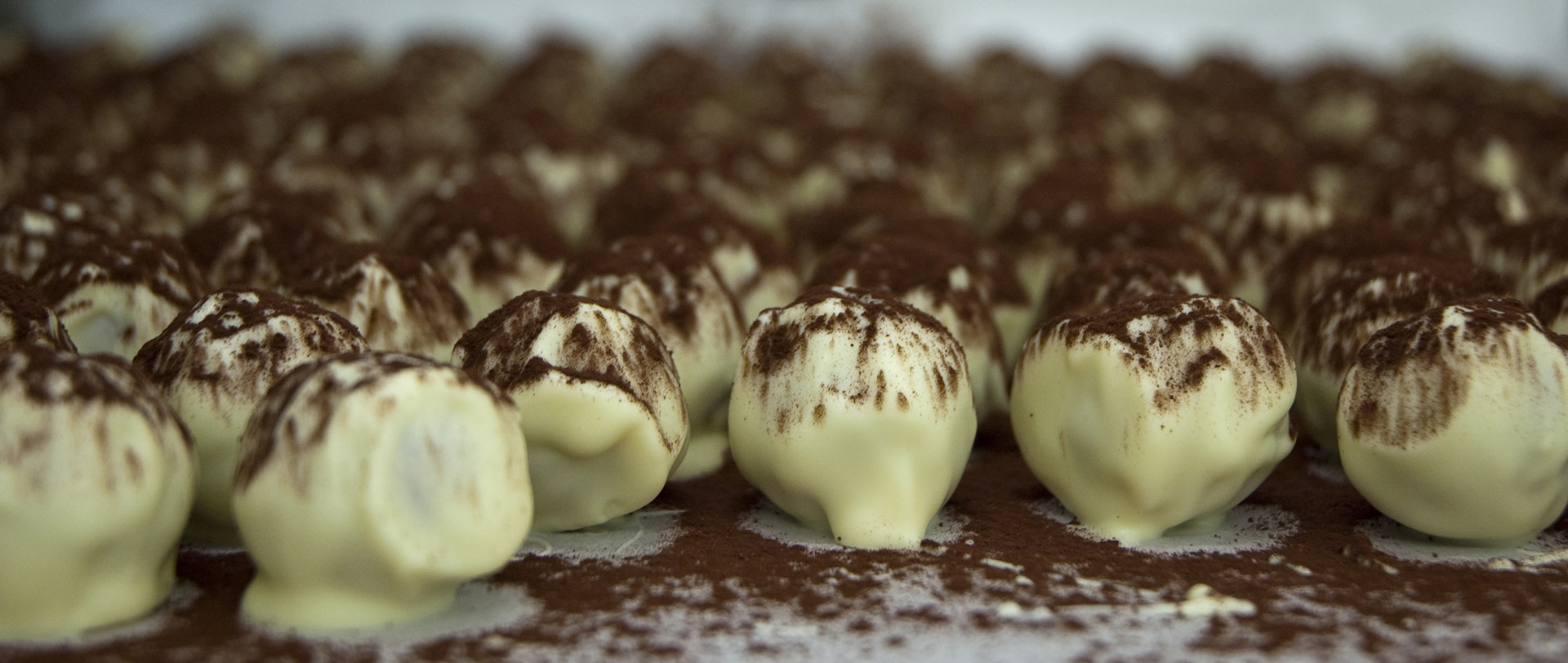
The Scottish Tablet Company, based in Campbeltown, produce a delicious range of tablet using only the finest ingredients and patience. Scottish Tablet was first noted in The Household Book of Lady Grisell Baillie in the early 18th century. The traditional recipe used only sugar and cream but the Scottish Tablet company handmakes it to a family recipe using condensed milk and butter. You can eat it plain or flavoured with a lovely wee drop of local whisky, brandy, ginger, caramel or Irish cream. This medium-hard confectionary is unique to Scotland. Some liken it to fudge or toffee but we know better! What we can say is that it melts in the mouth and is very moreish. Pick up your packet at The Kintyre Larder (Campbeltown), Carradale Community Shop, Kintyre Gin Distillery Shop or order online.
The Oban Chocolate Company on Oban’s esplanade is the brainchild of Helen and Stewart MacKechnie. Inspired by a visit to the Margaret River Chocolate Factory in Australia, Helen trained as a chocolatier with Stewart acting as chief taster. Since opening in 2003, their innovative hand-made chocolates have won award after award, most notably as one of GoEuro’s Top Ten Most Delicious Chocolate Shops in Europe. Visit the shop and café and you’ll be able to see the chocolatiers at work and learn about the process. You’ll find a huge range of chocolates to purchase from artisan bars to chocolate mice and build your own selection boxes. There’s also a good range of vegan and dairy-free bars. Our favourites are the artisan slabs with fabulous flavour combinations. Think milk chocolate with nutty apple crumble, dark chocolate with rose and almonds, and our winner, the marmite bar pack.
Caramiche Artisan Chocolates is a small, family-run business in Dunoon producing luxury chocolates. Using only the finest ingredients, the chocolates are created in micro-batches for optimum flavour and freshness. The online Chocolaterie sells a range of made-to-order milk, dark, white and vegan products including exquisite Pistachio and Cranberry mediants.
Handcrafted on the beautiful island of Islay, Islay Cocoa chocolates use only the finest ingredients. Most of the chocolate couveture is made in the country of origin to ensure that more income remains at source. The salted caramels won the Great Taste Award 2022. With hand harvested Orsay sea salt, they taste sublime!
The Sorcha Bakery in Oban is a plant-based micro-bakery. They create beautiful-looking cakes and bakes which taste as good as they look. They sometimes do a pop-up at The Rockfield Centre so keep an eye on their Facebook page for details.
Island Bakery (on Mull) make a wonderful range of organic biscuits. The bakery, powered by renewable energy, produces a huge selection from the award-winning lemon melts to black pepper oatcakes and date and walnut shortbread. These are biscuits of distinction!
Northern Lights Cakery is an independent boutique bakery set in the forested hills of Argyll, overlooking the Isle of Bute. The cakery specialises in high-end, locally produced celebration cakes, gluten free and vegan bakes, bespoke wedding cakes, high teas and postal bakes. Yummy!
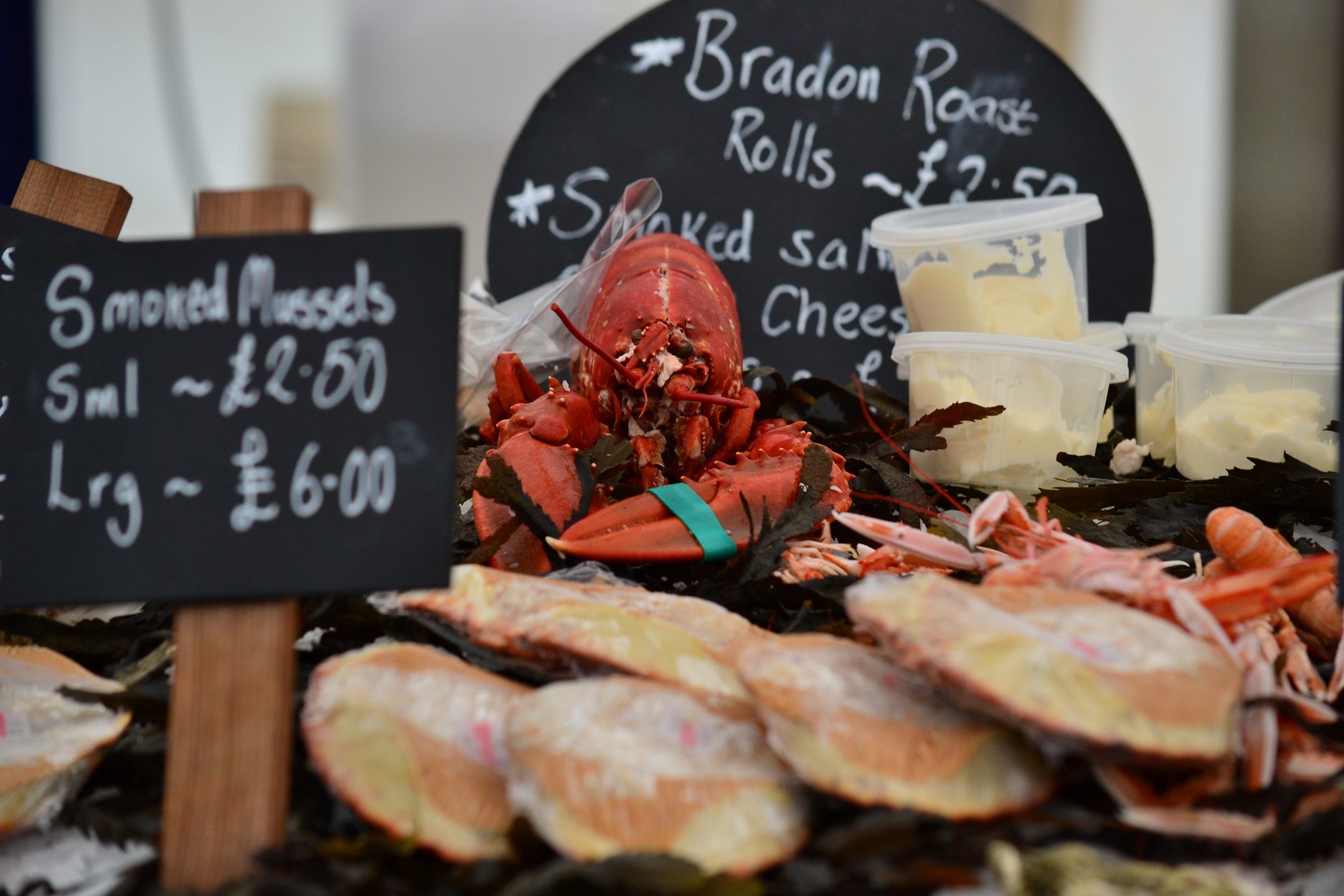
Where to Buy Local Produce
Visit a farm shop, local retailer or farmers market to meet local producers and reconnect with where your food comes from. You'll find a rich source of fresh, seasonal, local food.
Think raw produce, deli-style stalls and local delicacies such as Isle of Mull Cheese, Winston Churchill Venison and Highland Fold Ice Cream. Ask the producers for cooking tips, be inspired to try a new recipe, or pick up a herb or veg plant and try growing at home.
This is a place to connect with the provenance of our cuisine, with high-quality food, often cheaper than in the supermarket. And it all has low food miles and puts money into local pockets. Popular with locals and visitors alike, it’s alfresco shopping at its best. Slow, patient browsing where you touch and smell the produce and enjoy a convivial chat.
Local Outlets
Achnashelloch Farm Shop in Lochgilphead is run by the Campbell Family. It stocks pork, dairy and eggs (from their own farm) plus local meats and cheeses, coffee, pickles and preserves. There’s a wee tearoom where you can enjoy a cuppa’ looking out over Dunadd Hill.
Ardanan Estate Farm Shop is a large farm shop attached to a garden centre. It sells local produce, cheeses and gifts.
The Kintyre Larder in Campbeltown is a local, Scottish and speciality produce shop specialising in small artisan suppliers of food, drinks and spirits.
Glenbarr Café, Stores & Garden is a local shop serving the community with a wide range of products. As well as providing everyday groceries, daily newspapers, bread, cheese and milk, the store supports other local businesses and stocks lots of local & Scottish produce.
Kames Village Shop in Tighnabruaich is an award winning village store on the Cowal Way, offering a wide selection of groceries, locally butchered meat, Scottish cheeses, local beers, fine wines, and much, much more.
Argyll Food Hub
The Argyll Food Hub provides a marketplace for local products. It's situated in Tayvallich, a picturesque village in Knapdale, Argyll — an area rich in seafood, agricultural products, as well as locally manufactured food.
Oban Food Hub is an online forum where producers from the area each have their own webpage where customers can buy what they want. It is updated each Wednesday and customers can collect the purchased goods the following week, from the community centre in Oban. Great for stocking up your holiday home before you arrive!
Bute Kitchen is a social enterprise which aims to support local suppliers and producers. Head over to their website to find out where you can buy local produce including Isle of Bute cheeses, artisan bread and quality beef from naturally reared, grass-fed stock.
Farmers Markets
There are currently four regular Farmer's Markets in Argyll, all bursting with everything from delicious seafood, sustainably reared meat, homemade chutneys, artisan bread, craft beer and mouth-watering seasonal fruit and veg. Please check online for times and dates before making a special journey. Enjoy!
Lochgilphead Farmers & Country Market
Organised by local producers, this little market is known for being welcoming and friendly. You’ll find a wide variety of tasty fare with regular stalls from Ifferdale Lamb, Argyll Country Kitchen, Ballywinine Beef, Diverse Preserves and more. It’s a great Saturday morning stop-off on your way to a stroll along the beautiful Crinan Canal.
Cairndow & Loch Fyne Farmers Market
A treat for seafood lovers, this monthly market offers a wide range of Argyll produce including Winston Churchill venison, Isabella’s Preserves, Inverloch cheese and Fyne Ales. And once you’re there, enjoy a walk along the shore of Loch Fyne followed by lunch in the Loch Fyne Oyster Bar.
Campbeltown Farmers Market
Situated at the foot of the Mull of Kintyre, Campbeltown is a small community where the farmers market has been set up by local food and craft producers. The market acts as a focal point for the community and visitors are made very welcome. Browse the stalls, sample the local fare, and take the opportunity to explore Campbeltown. Just down the road, the Torrisdale Castle Estate and award-winning Kintyre Gin Distillery are well worth a wee visit.
Tarbert Farmers Market
Visit this pretty village for a variety of stalls selling freshly caught seafood and shellfish from the village fishing fleet plus a wide range of local produce. Once you’ve shopped, head to the far end of Pier Road to see the tiny wee shell beach.
Seafood from Argyll
Food from ArgyllUsing time tested traditions, the smokehouses and aquaculture experts based in this unique coastland area produce wonderful smoked and fresh fish.
Smoking fish has long been part of the traditional way of life in Argyll. It has become the method behind many of the areas most successful businesses.
Smoking is one of the most primitive and effective ways of preserving food, and more to the point it is one of the most delicious cures there are for fish.
No-one knows how or when our ancestors discovered the process which was undoubtedly rediscovered many times. One can imagine a possible scenario where a tribe has spotted a fresh run of salmon in their local river.
Plenty of fish are caught and a feast prepared with the salmon strung up like socks over a fire. Not everything is eaten on the night and what is left seems to last longer than usual. Or perhaps it was a fisherman whose efforts to dry his catch outdoors in the salty breeze have been hampered by the rain. In frustration he retreats into his cave or bothy, and lights a fire to continue drying them indoors. Inadvertently he has stumbled on the magical properties of smoke and salt which together form the basis of the cure to this day.
Find out why their fish is renowned throughout the world for its quality and flavour.
Meat from Argyll
Food from ArgyllBeef, lamb and venison sourced from the diverse landscape of Argyll on the west coast of Scotland. Meet the Food From Argyll hill farmers and game keepers working and living in this beautiful but challenging environment.
From the end of September these hills begin to echo with the roar of rutting stags at dusk. “Oh, it’s a wild period,” says the stalker-cum-venison butcher, Winston Churchill. “It lasts about three or four weeks and you can really smell the change in hormones.” Winston, no relation to the other Winston Churchill, came here in the early 1980s from Northumberland where he had been a gamekeeper. He was soon settled at Balagowan at the head of the Holy Loch, working as a stalker and helping to keep the deer population in balance.
Winston is passionate about stalking and the thrill of being out on the hill and helping someone shoot their first stag, but he soon began to take an equal interest in the meat. It just seemed wrong that something so pure and wild, and above all local, was being carted off by dealers and processed centrally as ‘Scottish venison’, much of it exported. In Britain, people weren’t too sure about venison. It was the stuff of medieval banquets and Henry VIII, and it was surely too strong for modern tastes? Winston had no illusions that converting a nation raised on fish-fingers while watching Bambi on TV, was ever going to be easy.
Yet he also knew how deliciously tender and succulent his venison could be. First he needed to take control of the process by installing a full-sized game larder and learning how to butcher the meat in a purpose-built kitchen. Then, by selling people a first taste of the meat in sausages or burgers he proved how you can win them over through a burgeoning mail-order business and selling through the farm shop, local butchers, restaurants and farmer’s markets. His latest venture has been Scotland’s rock festivals like Latitude where the venison burgers sell like hot cakes. “I love ‘em. I think they’re fantastic!” says Winston who has become a true festival groupie, and is obviously thrilled that a whole new generation is discovering wild meat at its best.
